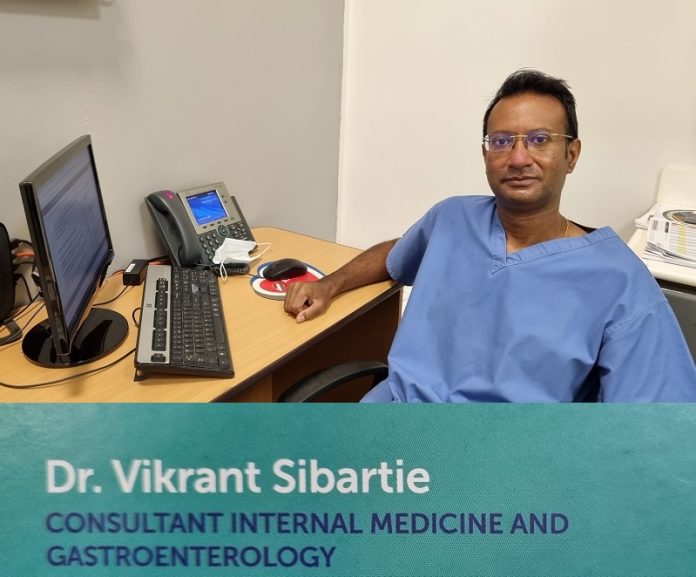Gastric Reflux disease is a chronic condition in which the stomach’s contents sometimes flow backward, up into the oesophagus (the tube that carries food from your throat into your stomach).
Gastric Reflux can interfere with daily living, but most people can get relief from it through lifestyle changes, home remedies, and medical treatment.
“It has increasingly become a personalized disease. Not everyone with reflux has the same underlying causes, symptoms, or amount of injury to the oesophagus tract.
Still, there are some typical signs of gastric reflux. The most common symptom of Gastric Reflux is frequent heartburn, felt by a painful, burning sensation in the middle of your chest. “Usually, if the heartburn is mild and less than two times a week, it is considered mild gastric reflux. However, “Symptoms more than two times a week, and where there is concern for inflammation in the oesophagus, is considered moderate or severe gastric reflux.”
Other common symptoms of gastric reflux: Chest pain, regurgitating your stomach’s contents, difficulty swallowing, bad breath, Nausea and vomiting, Sore throat or an irritated feeling in your oesophagus.
Symptoms of gastric reflux can overlap with some more serious health conditions, including major heart events. Gastric reflux may also trigger respiratory problems, laryngopharyngeal reflux, and asthma.
Who is at higher risk?
- Pregnant women are at a major risk factor for gastric reflux due to increased pressure on the abdomen and hormonal changes.
- consuming alcoholic, caffeinated, or carbonated beverages
- Eating certain foods, such as chocolate, citrus fruits, onions, peppermint, tomatoes, or spicy or fried foods
- Eating large meals
- Eating soon before going to bed
- Lying flat soon after eating
- Taking certain medicines, including aspirin and certain drugs for asthma, high blood pressure, allergies, depression, sleep disorders, and pain
How can it be prevented?
- Certain lifestyle changes may help reduce the frequency of episodes of gastric reflux
- Avoiding foods and beverages that trigger gastric reflux, including alcohol, caffeine, fatty foods, spicy foods, carbonated beverages, quitting smoking
- Maintaining a healthy weight
- Not wearing tight-fitting clothing
- Not lying down after a meal
Treatment and Medication Options for gastric reflux
- Antacids These neutralize stomach acid and offer quick but mild relief.
- H-2-Receptor Blockers While they also reduce acid production, they do not work as quickly as antacids, but they do provide longer relief.
- Proton Pump Inhibitors Called PPIs, they effectively suppress stomach acid and help heal your oesophagus better than H2R Blockers.
- If lifestyle changes and drugs aren’t enough to manage your GASTRIC REFLUX, you may be a candidate for surgery.
It is essential for individuals who suffer the chronic and recurrent symptoms of gastric reflux to seek an accurate diagnosis and to keep a journal of foods that trigger episodes of gastric reflux and detail your symptoms to discuss with a healthcare provider. They will discuss a personalized approach with you to prevent future episodes and to give the most effective treatment available.



![[Human Story] Yudishtheer Bhunjun rêve de pouvoir remarcher un jour](https://sundaytimesmauritius.com/wp-content/uploads/2024/02/Human-story-218x150.jpg)


![[CONTENU SPONSORISÉ] COVID-19 and Gut Health](https://sundaytimesmauritius.com/wp-content/uploads/2021/05/COVID-19-Gut-Health-Connection-Featured-218x150.jpg)
![[CONTENU SPONSORISÉ] How Acid Reflux May Be Linked To Gut Dysbiosis](https://sundaytimesmauritius.com/wp-content/uploads/2021/05/Dr-Gobin-218x150.jpeg)

![[Mer Rouge] Le Mouvement Anti-Pollution s’oppose à l’implémentation d’une raffinerie de graphite](https://sundaytimesmauritius.com/wp-content/uploads/2024/04/Mer-Rouge-150x150.jpg)



![[Mer Rouge] Le Mouvement Anti-Pollution s’oppose à l’implémentation d’une raffinerie de graphite](https://sundaytimesmauritius.com/wp-content/uploads/2024/04/Mer-Rouge-100x70.jpg)

